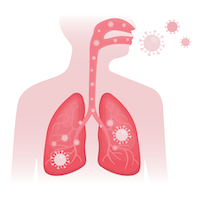Environment and Nutrition
Beginning at conception, environmental factors in health can accumulate over a lifetime and be from sources as broad as geographic location and economic status to specific external sources including physical activity, occupation, risky behaviors and diet. But some of these factors, especially in terms of diet are highly modifiable.
Important research is now being conducted on this concept of the “exposome,” as an environmental complement to the human genome. NRI researchers are learning how diet and other environmental exposures interact with disease and affect responses to treatment.
Publications
Environment and Nutrition Publications
2020
Precision (Personalized) Nutrition: Understanding Metabolic Heterogeneity. Zeisel S
Perspective: Dietary Biomarkers of Intake and Exposure-Exploration with Omics Approaches. Zeisel S
2019
Obesity and Cancer Metabolism: A Perspective on Interacting Tumor-Intrinsic and Extrinsic Factors. Hursting S
When less may be more: calorie restriction and response to cancer therapy. Hursting S
Energy balance and obesity: what are the main drivers? Hursting S
Metabolic Reprogramming by Folate Restriction Leads to a Less Aggressive Cancer Phenotype. Krupenko S
Early-Life Predictors of Fetal Alcohol Spectrum Disorders. May P
Alcohol’s Dysregulation of Maternal-Fetal IL-6 and p-STAT3 Is a Function of Maternal Iron Status. Smith S
2018
Energy balance and gastrointestinal cancer: risk, interventions, outcomes and mechanisms. Hursting S
Research Strategies for Nutritional and Physical Activity Epidemiology and Cancer Prevention. Hursting S
2017
Metabolic Reprogramming by Folate Restriction Leads to a Less Aggressive Cancer Phenotype. Krupenko S
Contribution of Dietary Supplements to Nutritional Adequacy in Various Adult Age Groups. Zeisel S
2016
CerS6 Is a Novel Transcriptional Target of p53 Protein Activated by Non-genotoxic Stress. Krupenko N
Abnormal Eating Behaviors Are Common in Children with Fetal Alcohol Spectrum Disorder. Smith S
Impact of a western diet on the ovarian and serum metabolome. Sumner S
Metabolomics enables precision medicine: “A White Paper, Community Perspective”. Sumner S
Related News
Researchers map how coronavirus infection travels through cells of nasal cavity and respiratory tract
Voruganti to Advance Research on Childhood Obesity with NIH Grant
NRI principal investigator Saroja Voruganti, PhD, has received a 2020 Cross Border Collaboration Award from the Center for Global Health Studies (CGHS) at the National Institutes of Health’s (NIH’s) Fogarty International Center (FIC). The awards support research...
Female Scientists Breaking Barriers at the Nutrition Research Institute
by Grace Gable Research Technician Sergey Krupenko Laboratory UNC Nutrition Research Institute Ada Lovelace, founder of scientific computing and the first computer programmer, approached science in a poetical way that still inspires scientific perspectives today....
Precision Nutrition Considered in NIH Strategic Plan
Recognition of the importance of Precision Nutrition can be seen in several recent funding initiatives announced by the National Institutes of Health (NIH). NIH is the major funding source for biomedical research in the US, and its funding priorities reflect what it...





